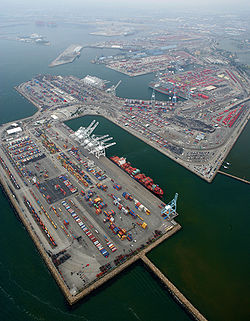This article has multiple issues. Please help improve it or discuss these issues on the talk page . (Learn how and when to remove these messages)
|

The Long Beach Harbor Patrol is an agency within the Port of Long Beach. Its officers are armed public officers responsible the public safety and physical security of the Port. [1] Appointed as Public Officers under California penal code 836.5 by the City of Long Beach.
Contents
Long Beach Police Port division was established on December 17, 2001, following the terrorist attack of September 11, 2001. [2]